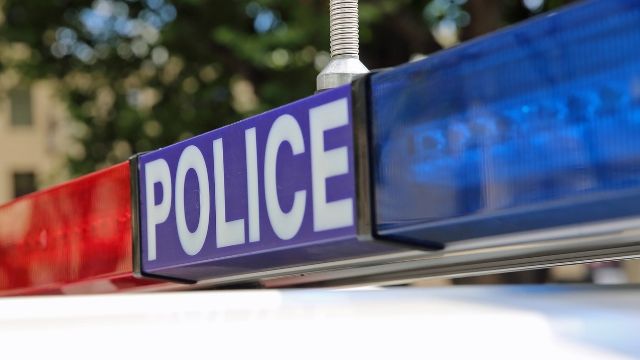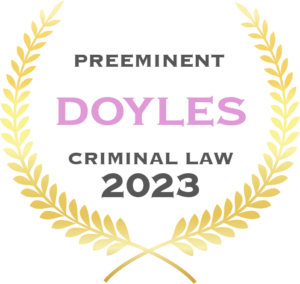If the police do not have a warrant, they must satisfy a number of requirements, contained in the Law Enforcement (Powers and Responsibilities) Act, before they can search you or your possessions.
In order to conduct any search, police must have a ‘reasonable suspicion’. Reasonable suspicion is more than just a possibility.
Searching your Car
Police can stop, search and detain your vehicle without a warrant if they reasonably suspect that your vehicle:
- contains a prohibited drug or anything stolen or unlawfully obtained, or
- someone in your vehicle has in their possession a prohibited drug, or something stolen or unlawfully obtained, or
- was used, or is being used, in the commission of an offence, or
- contains anything that has been used, or is intended to be used in the commission of an offence, or
- is in a public place or a school and contains a dangerous item that is being, or was used to commit an offence.
If a police officer finds any of these items during a search of your vehicle, they can seize and detain them. Police can also require the driver, and any passengers of the vehicle to disclose their identity if they believe the vehicle was used in connection with a serious offence. Failing to disclose your own identity, or the identity of others, (or giving a fake identity) can carry a fine of $550 or 12 months’ imprisonment or both.
Police may also exercise powers to stop, search and detain your vehicle if doing so might reduce any serious risk posed to public safety.
If it is necessary, and the situation is serious and urgent, police may establish a roadblock to stop a vehicle. However, if a senior police officer authorises the roadblock, it is sufficient that the vehicle is being or was used in the commission of a serious offence, or the roadblock is necessary to reduce a risk to public safety.
Searching your phone
Police can search your phone if they have your consent. If you don’t consent, and police don’t have a warrant, they can only seize and search your phone if they suspect on reasonable grounds that:
- it may provide evidence of the commission of an offence, or
- was used or intended to be used in the commission of an offence, or
- is stolen.
Police can only seize or search your phone if they first conduct a lawful search. However, the case of Ghani v Jones [1970] 1 QB 693 (which continues to be used in NSW) indicates that if police have reasonable grounds to believe that a serious crime has been committed and an item is either the ‘fruits or a crime’, was used in the crime, or provides important evidence of a crime, they can seize the item even if you refuse to hand it over – as long as they believe that your refusal was ‘quite unreasonable’.
Generally, without a warrant, police cannot force you to unlock your phone or to disclose your password.
Searching you
Police can search you and anything in your possession without a warrant if they have a reasonable suspicion that you have anything in your possession or control that is:
- stolen or unlawfully obtained, or
- intended to be used (or has been used) in connection with an offence, or
- a dangerous article being used in the commission of a serious offence, and you have it in your possession in a public place, or
- a prohibited drug or plant.
In order to search you, the police can ask you to open your mouth and shake or move your hair. If you do not comply with a direction to do this, you can face a fine of up to $550. Importantly, police cannot forcibly open your mouth.
In order to conduct a strip search, police have to comply with a number of other rules. You can read about strip search laws here.
If you are under arrest or in lawful custody, police can search you if they suspect on reasonable grounds that it would be prudent to do so to ascertain whether you are carrying anything that:
- would present a danger to a person, or
- could be used to assist a person to escape from custody, or
- is something related to, or was used or intended to be used in the commission of an offence, or
- is something that will provide evidence that an offence has been committed.
If police find any of these items in a search, they may seize and detain it.
Key Takeaways
- NSW police can search a car without a warrant if there's reasonable suspicion of prohibited or stolen items, or the car's involvement in an offense.
- Police can search your phone with consent, or without if they reasonably suspect it holds evidence of an offense or is stolen.
- Personal searches without a warrant require reasonable suspicion of possessing stolen items, intended use in an offense, or carrying dangerous articles in public.
- Police may require identity disclosure in certain scenarios, with penalties for non-compliance.
Do I have to answer police questions?
Police can require you to disclose your identity in circumstances including:
- if they have reasonable grounds to suspect that you can assist in the investigation of a serious offence, or
- if police intend to give you a direction to ‘move on’ from a place, or
- where they reasonably suspect that an apprehended violence order (AVO) has been made against you, or
- in traffic or driving situations.
If you fail to do so or give a false name or address, you can face a fine of up to $220.
Beyond providing identification, you do not have to answer any other questions. It is usually in your best interests to obtain legal advice before answering police questions.
If you have concerns about the legality of a police search or have been charged as a result of a police search, you can contact the team at Hamilton Janke Lawyers 24/7 by calling 4038 1666.
Written By

James Janke
James Janke is founding partner at Hamilton Janke Lawyers, and has more then decade of experience as a Criminal Defence Lawyer. Admitted to both the Supreme Court of New South Wales and High Court of Australia



